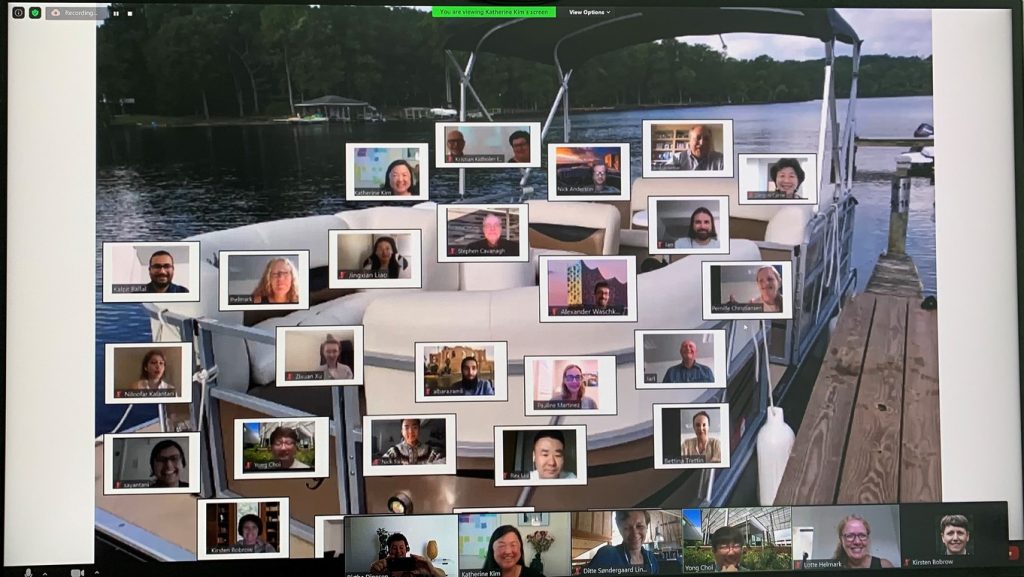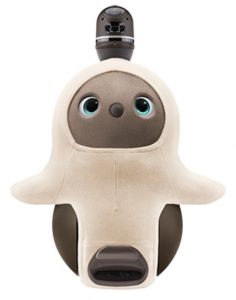Webinar Tuesday, September 22, 2020
9:00 AM to 10:00AM Pacific
12:00 PM to 1:00 PM Eastern
18:00 to 19:00 Central European
Webinar Tuesday, September 22, 2020
9:00 AM to 10:00AM Pacific
12:00 PM to 1:00 PM Eastern
18:00 to 19:00 Central European
Webinar Tuesday, August 18, 2020
9:00 AM to 10:00 AM Pacific
12:00 PM to 1:00 PM Eastern
18:00 to 19:00 Central European
The Transatlantic Telehealth Research Network (TTRN) & CITRIS, UC Berkeley Summer Institute is having the 4th international PhD course these days. This year it is virtual due to the Covid-19 situation.
Today I have given a lecture on Social Robots & AI and we have had good discussions. We have 28 participants from the USA, China, Germany, Hong Kong, Singapore and Denmark. Every year we have a tradition on taking a boat tour during the PhD course – this year it is a virtual boat trip.

Next year the TTRN & Citris UC Berkeley Summer Institute will be held at Aalborg University.
This Web Forum highlights strategies for rapid onboarding of telehealth staff, with a specific focus on critical issues for engaging health care staff in response to COVID-19. Presenters will also discuss practical strategies, tips and case studies for organizations to use to improve patient engagement for telemedicine services.
A Focused Review of Technologies and Teleservices
A review of service delivery and technologies in telerehabilitation programs for patients with knee osteoarthritis has been performed since the year of 2000. The conclusion is that video-based telerehabilitation programs can be considered the best alternative solution to conventional treatment. Sensor-based solutions have also become more popular due to rapid developments in sensor technology. Communication and human-generated feedback remain as important as monitoring and intervention services.
Webinar Tuesday, July 21, 2020
9:00 AM to 10:00AM Pacific
12:00 PM to 1:00 PM Eastern
18:00 to 19:00 Central European
Webinar Tuesday, June 23, 2020
9:00 AM to 10:00AM Pacific
12:00 PM to 1:00 PM Eastern
18:00 to 19:00 Central European
Webinar Tuesday, May 26, 2020
9:00 AM to 10:00AM Pacific
12:00 PM to 1:00 PM Eastern
18:00 to 19:00 Central European
Abstract: Brain–computer interfaces (BCIs) can be used in neurorehabilitation; however, the literature about transferring the technology to rehabilitation clinics is limited. A key component of a BCI is the headset, for which several options are available.
The aim of this study was to test four commercially available headsets’ ability to record and classify movement intentions (movement-related cortical potentials—MRCPs). Twelve healthy participants performed 100 movements, while continuous EEG was recorded from the headsets on two different days to establish the reliability of the measures: classification accuracies of single-trials, number of rejected epochs, and signal-to-noise ratio. MRCPs could be recorded with the headsets covering the motor cortex, and they obtained the best classification accuracies (73%-77%). The reliability was moderate to good for the best headset (a gel-based headset covering the motor cortex). The results demonstrate that, among the evaluated headsets, reliable recordings of MRCPs require channels located close to the motor cortex and potentially a gel-based headset.

LOVOT is a social robot developed by Groove X in Japan. In March Laboratory for Welfare Technologies was about to begin to test the LOVOT with citizens with dementia at nursing homes in Aalborg, Viborg and Skive Municipality in Denmark as the first place in the world. LOVOT was brought to the nursing homes and ready to interact with the citizens. Unfortunately, Covid-19 started spreading, causing Denmark to go into lockdown and stopped us from testing LOVOT at the nursing homes. This has brought us in quite a unique situation: LOVOT being in lockdown together with citizens with dementia at the nursing homes. We are therefore excited to see how LOVOT will interact with the citizens in a lockdown period. The nursing homes now report back that the citizens have enjoyed the LOVOT and it has created joy and a lot of smiles for the citizens with dementia. We have postponed our scientific test supported by the National Health Authorities (Sundhedsstyrelsen) in Denmark to the fall 2020.